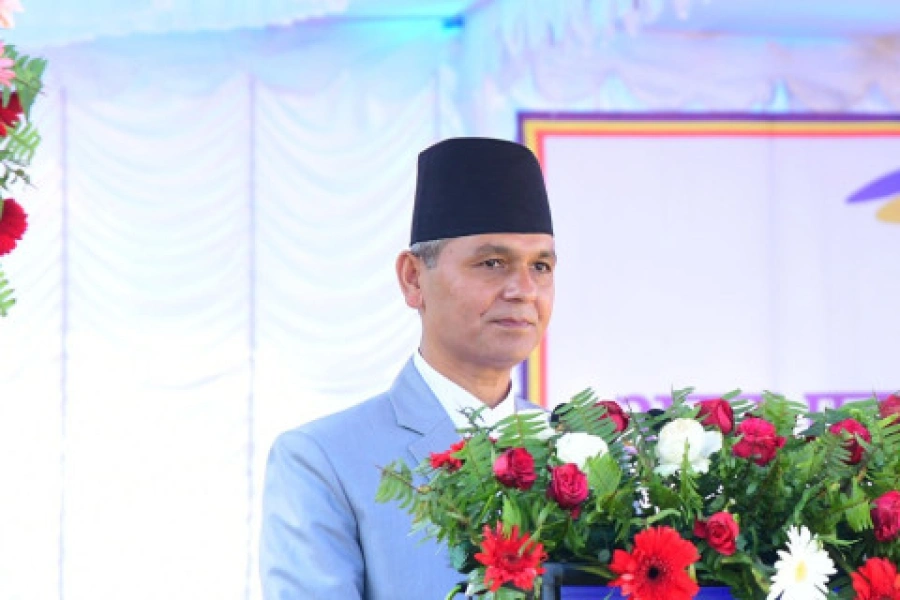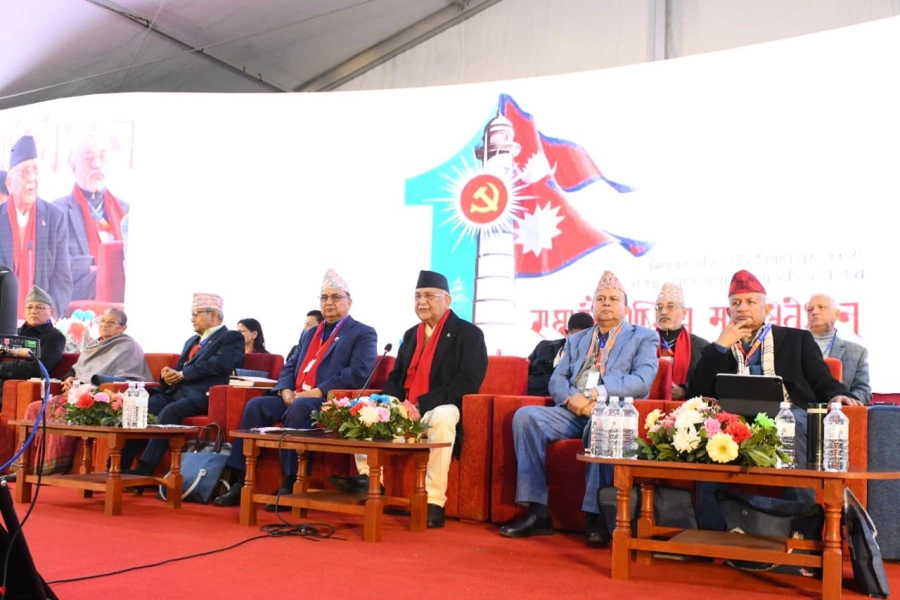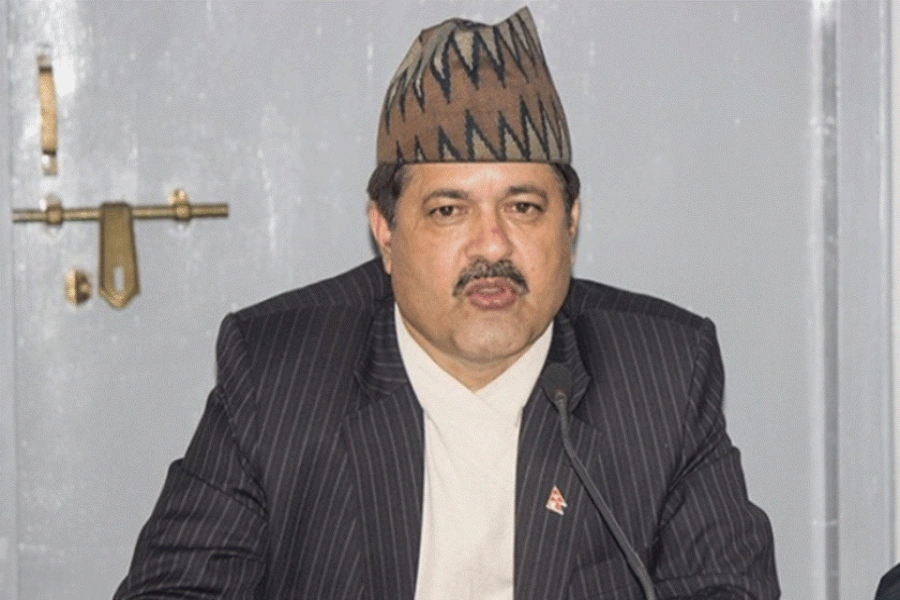KATHMANDU, Jan 16: A new government ordinance has amended several laws to streamline government operations. As per the updated law, a seven-day deadline has been set for the public servants to simplify government processes to address service seekers’ issues. Failure to comply with the law will result in action being taken.
In government-related criminal cases, a settlement between the victim and defendant may result in a waived court penalty. The law mandating imprisonment for inability to pay fines has been repealed, as only 15 percent of the total amount and fine ordered by the initial court needs to be deposited. Consequently, the government expanded the settlement options for government-related criminal cases.
The government added ten more government-related criminal charges that it will investigate or register in the court to its settlement list. Cases of fraud, unfair transactions, loss of property of the general public, criminal breach of trust related to loss, loss of property of the general public, loss of property related to loss, loss of property related to a contract or contract related to loss, loss of property of the general public, and loss are enlisted in its settlement list.
According to the government, the lawful settlement of Section 285 (Civil Penal Code, 2074 BS) criminal nuisance cases, which are ordered to be settled according to the law, will avoid repeated court proceedings. Earlier, the government case was opened for settlement only for cases related to check bounce of banking offenses.
According to the ordinance, if for any reason the posts of both the chairperson and vice chairperson or the head and deputy head of the local level are vacant, the members of the executive committee will act as the acting chairperson and vice chairperson or the head and deputy head from among themselves, and if the post of a ward chairperson is vacant for any reason, the members of the ward committee will select an acting ward chairperson from among themselves.
Similarly, the mandatory retirement age of government employees has been increased from 58 to 60 years. Besides, legal barriers to seizing criminal assets have been removed by the government. The procedural difficulties in seizing criminal assets and tools used in crimes have been eliminated. Similarly, arrangements have been made to immediately auction off seized vehicles submitted to the court or to use them at a depreciated value by the concerned owner by depositing them.
Parliamentary panel agrees to increase mandatory retirement age...

To create an investment-friendly environment, changes have been made for the non-resident Nepali citizenship. The new ordinance has provisions to provide free visas to non-resident Nepali citizenship holders for 10 years of stay in Nepal and free multiple-entry visas for two years.
Offenders sentenced to less than one year in prison can pay a fee in lieu of imprisonment. In the event of the victim's death, the compensation will be received by the victim's husband, wife, son, daughter, or parents. To prevent misuse of the amount in social security allowance, a national identity card has been gradually made mandatory. Similarly, teachers will also be provided with pensions from now on.
To make the health insurance program effective, there has been an arrangement to have at least one service provider health institution at each local level for the purpose of the first service point. Similarly, Nepali companies have also been allowed to invest abroad.
Legal provisions have been made to allow Nepali information technology-based companies to open subsidiaries branches abroad, carry out their business, and remit income to Nepal. In addition, the process has been simplified so that non-resident Nepalis do not have to go through the process when investing abroad.
After the issuance of this ordinance, not only industries with foreign investment but also industries with Nepali investment will be able to take loans from foreign financial institutions with the approval of Nepal Rastra Bank. In addition, the process of repatriating the proceeds from foreign investment made in Nepal has been simplified. Foreign investment has also been opened in the Specialized Investment Fund to be set up in Nepal.
The government has also included service-oriented industries in the current arrangement where only manufacturing industries receive facilities similar to export industries when selling their products to industries located within the special economic zone. It has also made arrangements for tax exemption for industries operating outside the country if they relocate to the special economic zone.
The government has also simplified the operation and liquidation of companies, which has been a hassle for years, through the ordinance. By further organizing white shares, it has been arranged that 40 percent of the paid-up capital in the case of start-up enterprises and 20 percent of the shares in the case of companies can be given to individuals. The process has been simplified by removing the additional approval of the Companies Registrar's Office and the provision of a three-year audit when private companies issue shares at a premium price. Company registration is done in a simple manner, but the hassle of closing it has been eliminated. The cancellation of company registration has been facilitated by giving a 90 percent discount on the fine imposed on the company for not submitting details.
Similarly, the government has made arrangements to keep a mortgage on land exceeding the limit so that full ownership will come to the government if the project is operated. In the case of a project implemented in which the entire project is handed over to the government after a specified period as per the agreement made with the government, land exceeding the limit can also be kept as a mortgage in banks and financial institutions so that the government does not incur any debt liability. Facilities and concessions have also been provided to information technology-based industries with an annual turnover of more than 50 million rupees. Provisions have been made to close industries operated without registration and to register the industry after paying a fine. Fund management and asset management have also been added to the category of service industries.
Similarly, the management of public enterprises has also been facilitated through an ordinance, which has made procedural improvements to the existing system and facilitated the private sector by providing for the participation of the public enterprises in management contracts or leases. The government has also simplified revenue collection procedures. The Revenue Investigation Department has facilitated the collection of revenue by making arrangements for the ‘Internal Revenue Department or Customs Department’ to decide on disputes over revenue leakage of up to three crore rupees without filing a case.
It has been arranged that there is no need to wait for the verdict to pay the amount in revenue leakage cases and that a settlement can be made for the payment of fines and amounts. In addition, the provision that it is not possible to appeal to the Revenue Tribunal without depositing cash has been provided, and the right to appeal by submitting a bank guarantee covering the entire duration of the case has been provided.
Similarly, the issued ordinance has also facilitated the decision and implementation of arbitration of disputes arising in government contracts. To end the delay in resolving disputes arising in government contracts through arbitration, it has been facilitated by making arrangements for expedited arbitration. In order to further improve the arbitration proceedings, make the decision final, and facilitate the implementation of the decision, a provision has been made that only if the court suspends the implementation of the arbitration decision and the decision will not be implemented, and a petition to annul the arbitrator's decision will not suffice.
Similarly, the law that provides exemption from the limit in the real estate business but prohibits the sale of land exceeding the limit has been changed to allow the sale of houses and apartments after obtaining approval for such land and developing it within a specified period, but the land allocated for public purposes cannot be mortgaged or sold. In the arrangement for landless squatters and unorganized settlements, a provision has been made to provide ownership of land to landless Dalits and landless squatters free of charge and to unorganized settlers at a specified fee.
To balance the Federal Consolidated Fund, the Ministry of Finance has made arrangements to deposit all or part of the remaining balance in other government funds established under the prevailing law in the Federal Consolidated Fund, which will be released to the relevant fund at the time of liability creation.
Prime Minister KP Sharma Oli also said on Wednesday that 27 acts, including 11 related to economic and business environment reform and investment promotion, 13 related to good governance and public service promotion, and three related to land and forests, have been amended through ordinances. Similarly, he claimed that two other separate ordinances have also been issued by amending some provisions in the Economic Procedures and Fiscal Responsibility Act, 2076 BS, and the Privatization Act, 2050 BS to address some contemporary issues and provide procedural clarity.





































